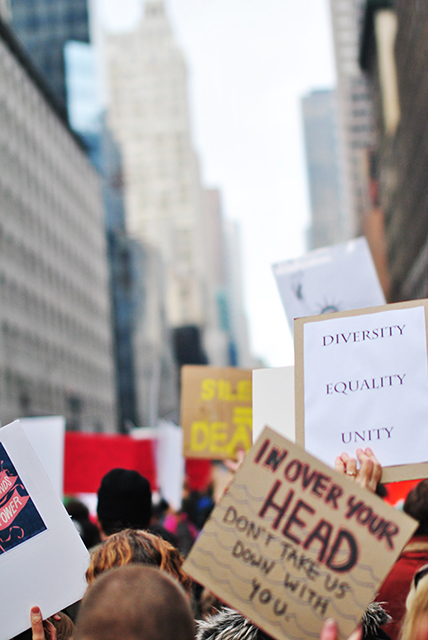With racial tensions at an all-time high, conversations surrounding social change are vital at Christian institutions. The rhetoric pointed towards the wrongdoings of white people during diversity talks, however, often leaves white students feeling demonized, making them unreceptive to the conversation entirely. The author of an opinion piece in the Chimes last week even went so far as to suggest that because of this “demonizing” rhetoric, diversity talks are no longer effective. He also claimed the rise of political correctness on college campuses only furthers the problem by suppressing racist ideologies. However, softening the language used in diversity talks and not holding students to a standard of political correctness would be ineffective in promoting racial reconciliation at Christian universities.
An emotionally taxing experience
The truth of the matter is students of color are just as, if not more, exhausted by the diversity conversation as white students are. Trying to convince a body of people your experience matters, and in many cases, your experience is even real, is emotionally taxing. In addition, people of color are faced with microaggressive comments on a daily basis and yet are expected to ignore them, taking the aggressor’s true “intention” into consideration. Not to mention the not-so-micro aggressions, such as having a hate symbol drawn on your door and being told that it was potentially just a joke.
So is it all that surprising when we are finally handed the microphone at a 30-minute chapel session that we are not exactly soft with our delivery? The pointed language often used in diversity talks is not meant to elevate people of color to moral superiority, but rather to reflect the intensity of the pain we so often feel. When your very personhood is chipped away at by the social and institutional injustices that have marked our country since its founding, it is difficult not to respond with strong language in return. The author’s claim in last week’s article that the cultivation of safe spaces for people of color is regressive for America demonstrates a misunderstanding of the grandeur of these felt pains and a lack of compassion for people of color’s chosen way of coping with them.
Seeking shalom
In addition, not holding students to a policy of political correctness would only increase the pain that people of color experience. Political correctness is not merely a matter of “censoring” racist ideologies, but exposing those ideologies for what they truly are—sin. Any act identified as sin in the Bible is prohibited for Christians to partake in. Using language that could potentially harm a fellow image bearer is no different. As Christians, we are called to seek the shalom of our brothers and sisters in Christ. One of the many aspects of a community marked by shalom is dignity is ensured for each and every member. Using language that is politically correct is an active way of respecting the dignity of all members of the shalom community.
Conversations about diversity are difficult for everyone involved. However, softening the rhetoric to keep white people comfortable and simply allowing sinful, racist ideologies to be proclaimed will not bring about the progress we need. Christian racial reconciliation will be achieved when the pursuit of justice for all people becomes the basis for how we live, rather than a topic of discussion Christians too often choose to opt out of.







